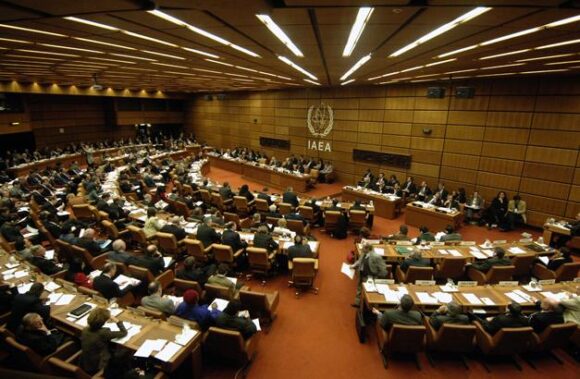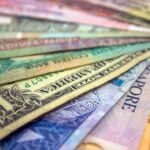Tehran, Iran – Iran has issued strong warnings against what it calls Western provocation and potential Israeli aggression as the country prepares for a sixth round of indirect negotiations with the United States over its nuclear programme.
Behrouz Kamalvandi, the deputy head of Iran’s Atomic Energy Organization, told state television on Monday night that Tehran would deliver a “proportionate” response to any moves by Western countries or the International Atomic Energy Agency (IAEA) that it views as hostile. “If we wanted to reduce our cooperation, the agency would not be able to carry out its duties. We have cooperated beyond our duties, and if the agency does not appreciate that, we will degrade cooperation to its normal levels,” Kamalvandi said.
His remarks coincide with the opening of a five-day IAEA Board of Governors meeting in Vienna, where Iran’s nuclear activities are once again under scrutiny. Tehran stands accused of failing to meet its nuclear non-proliferation obligations, prompting France, Germany, and the United Kingdom—backed by the United States—to push for a new censure resolution. The resolution, if passed, would mark one of the most severe diplomatic steps taken against Iran in nearly 20 years and could signal the beginning of a more confrontational phase.
The three European countries, still signatories to the 2015 Joint Comprehensive Plan of Action (JCPOA), may also activate a “snapback” mechanism under the agreement that would automatically reinstate United Nations Security Council sanctions previously lifted in exchange for limits on Iran’s uranium enrichment, capped at 3.67 percent under the deal. The US withdrew from the JCPOA in 2018 under President Donald Trump, reimposing sweeping sanctions on Iran.
Iranian Foreign Minister Abbas Araghchi has responded forcefully, warning that any such move would be a “major strategic mistake.” He accused the European powers of escalating tensions by reviving allegations that Tehran is secretly pursuing nuclear weapons—charges Iran has consistently denied, asserting its programme is solely for peaceful purposes.
Iran has further warned that a reimposition of UN sanctions could lead to its withdrawal from the Nuclear Non-Proliferation Treaty (NPT), which governs international nuclear oversight. Tehran has also suggested it may block access for IAEA inspectors altogether if pushed too far.
Iranian officials have long claimed that traces of nuclear material found at several undeclared sites were planted as part of an orchestrated sabotage campaign. Much of the IAEA’s scrutiny is based on intelligence provided by Israel. Prime Minister Benjamin Netanyahu previously revealed that Israeli agents raided a Tehran warehouse in 2018 and extracted what he described as damning documents on Iran’s nuclear intentions.
Kamalvandi echoed these concerns, suggesting that the IAEA’s precision in identifying testing locations—such as the Turquzabad site near Tehran—was the result of deliberate sabotage. “It is natural that whoever contaminated the site, has given the exact coordinates for the inspectors to look,” he said.
In a new twist, Iran has announced the acquisition of a “treasure trove” of thousands of documents allegedly detailing Israel’s own secret nuclear programme. While specifics have yet to be made public, the announcement has been lauded by key Iranian power centres including the Supreme National Security Council, the Islamic Revolutionary Guard Corps (IRGC), the Ministry of Intelligence, and the Iranian Army.
The Supreme National Security Council claimed that the newly obtained documents would strengthen Iran’s deterrence against Israeli threats. The Council warned that if Israel attacks Iranian nuclear facilities, Tehran now has the means to strike back at Israel’s previously hidden nuclear sites. “We will respond proportionately to any hostile acts against our economic and military infrastructure,” the Council stated.
IAEA Director General Rafael Grossi recently remarked that potential Israeli airstrikes could push Iran to pursue nuclear weapons—an assertion that has further infuriated Iranian officials. Mohammad Eslami, the head of Iran’s Atomic Energy Organization, lashed out at Grossi, accusing him of turning the IAEA into a tool for a select group of countries. “They issue the commands, and he obediently follows, executing their directives,” Eslami said.
Iranian authorities have even alleged that Grossi is seeking to position himself as a future United Nations Secretary-General and is therefore compromising the IAEA’s neutrality to gain support from Western nations. Grossi, for his part, has insisted that the agency is acting independently and in accordance with its mandate.
Meanwhile, diplomatic manoeuvres between Iran and the US continue. Trump recently announced that the sixth round of talks will occur on Thursday, although Iran’s Foreign Ministry has indicated preparations are underway for a meeting next Sunday. The negotiations, mediated by Oman, have yielded little progress over five rounds, with a central impasse remaining: uranium enrichment.
Initially, Trump stated that his only demand was that Iran must not possess a nuclear weapon. However, his position has since shifted to demand a complete end to all uranium enrichment on Iranian soil—an unacceptable condition for Tehran. Iranian leaders maintain that enrichment is a sovereign right necessary for civilian purposes, including energy production and the manufacture of radiopharmaceuticals.
Despite the standoff, Iranian officials have said they will soon submit a counterproposal to the United States in hopes of advancing the negotiations.
Meanwhile, Israeli intelligence chief David Barnea and other senior officials are reportedly scheduled to meet with Steve Witkoff, the Trump-appointed envoy leading the US negotiating team, ahead of the upcoming round of talks.
As tensions mount on both the diplomatic and military fronts, the coming days could prove decisive in shaping the future of Iran’s nuclear programme, regional stability, and international non-proliferation efforts.






